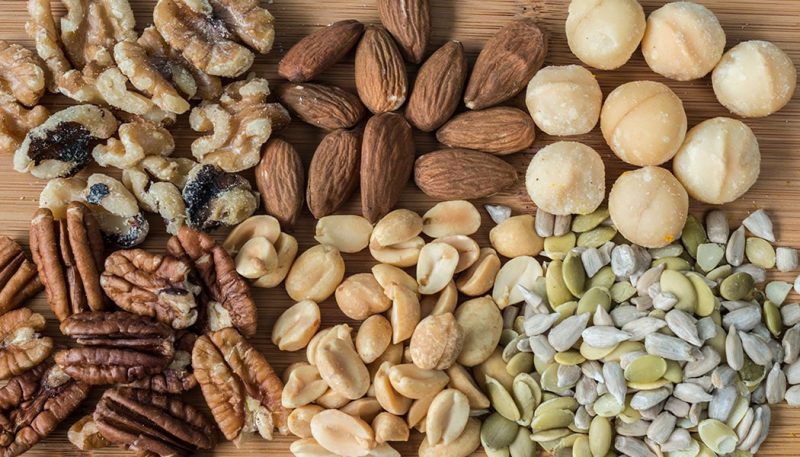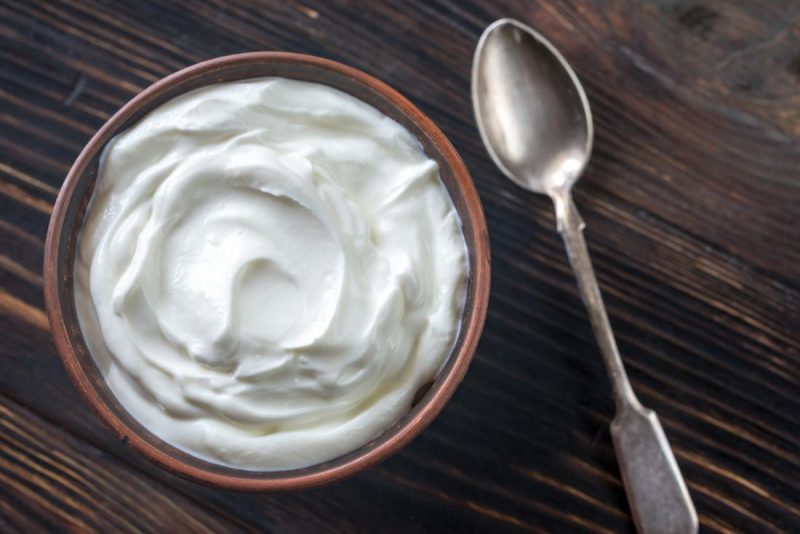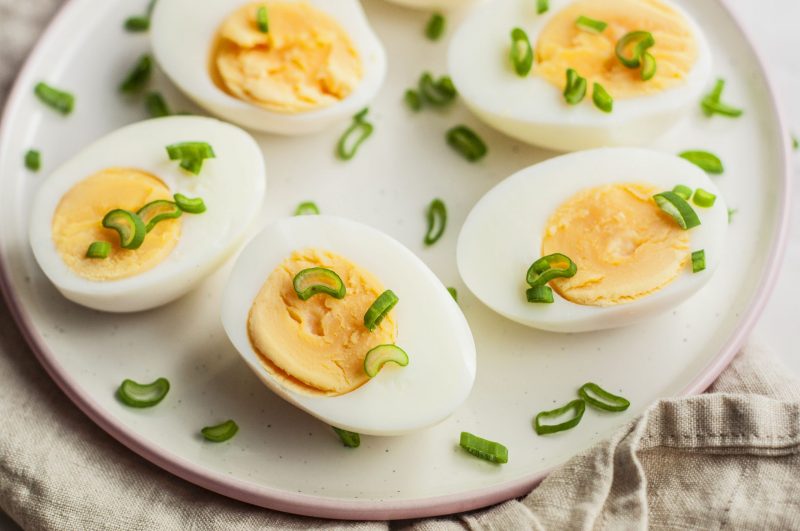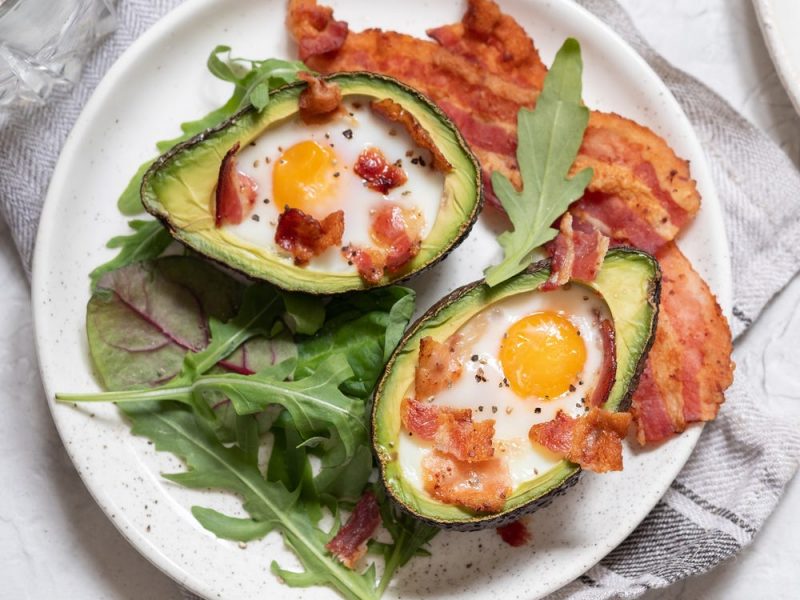Keto is a low carb, high fat diet, and some studies have shown that it can be very impactful weight loss, diabetes and other health conditions too. More scientific research is needed, but in the meantime, there’s no harm in being healthy! A keto diet limits your carbs to 20-50g per day, which we know can be hard, but there are so many delicious and nutritious things you can eat that you won’t even feel like you’re missing out for a second! We’ve put together a list of the top ten foods you can eat on a keto diet – thank us later!
1. Cheese

Low in carbs, high in fat? Tick! Cheese contains something called conjugated linoleic acid, a fat that’s been linked to improvements in body composition and fat loss. It also helps reduce the loss of strength and muscle mass that comes naturally with age. It’s high in saturated fat, which according to studies, may actually protect against heart disease rather than increasing the risk. 28g of cheddar contains 1g of carbs and 6.5g of protein and offers calcium too. With so many cheeses to choose from, do your cheese research then get shopping!
2. Berries
Luckily, berries are the exception to the rule that most fruits are too high in carbs for keto! Not only do berries contain antioxidants, which reduce inflammation and protect against disease, they’re low in carbs and high in fibre too. Actually, blackberries and raspberries contain as much fibre as digestible carbs. In 100g of blackberries, there’s 11g of carbs, in blueberries there’s 9g, in raspberries 6g and strawberries 7g. A wonderful snack and a delicious treat – no need to miss out!
3. Butter

Butter is the perfect keto food because it has just trace amounts of carbs per serving. Similar to cheese and other fatty dairy, butter has a lot of conjugated linoleic acid, which promotes fat loss. What’s more, the misconception about butter causing heart disease because of its high level of saturated fat is exactly that – a misconception. Recent studies show it isn’t connected to heart disease, and even better, it’s actually likely that moderate consumption can reduce the risk of strokes or heart disease. The even better news? This goes for cream too!
4. Biltong
Biltong is the perfect keto food. It has all the benefits of meat, with the more practical and delicious benefits on top. 28g of biltong has 1g of carbs, 2g of fat and 16g of protein. It’s high in Vitamin B12, which is essential for healthy blood and nerve cells as well as successful cell replication. It’s very rich in iron and sodium, which are very common deficiencies, and also a great source of magnesium and potassium. You need to find the right biltong brands to deliver these great nutritional benefits, so check out M-EAT! who are biltong experts that deliver such results.
5. Nuts and Seeds

This great option is low in carbs and high in fat and fibre, with the added bonus of helping you to feel full and absorbing fewer overall calories. Studies also show that regularly eating nuts can reduce the risk of heart disease, certain cancers, depression, and other chronic diseases. Bear in mind that you should check each type specifically, as the amount varies between foods – for example, almonds or pecans have 2g of carbs per 28g, whereas cashews have 8g.
6. Dark Chocolate
This will be great news to you without a doubt! Dark chocolate is a good source of those beneficial antioxidants, as well as full of flavanols, which help reduce your risk of heart disease by lowering your blood pressure and keeping your arteries clear and strong. 28g of 100% cocoa chocolate has 3g of carbs – but be careful to choose dark chocolate that contains a minimum of 70% cocoa solids, and ideally more than that, and not too much. Even better news? This goes for cocoa powder too, which shockingly contains at least as much antioxidants as fruits like acai berries or blueberries!
7. Greek Yogurt

It’s very healthy and high in protein, although it does contain some carbs, so enjoy it in moderation: half a cup of plain yoghurt has 4g of carbs and 9g of protein. But, good news! Studies show the impact of Greek yoghurt can increase feelings of fullness and decrease appetite too. Wonderful food by itself as well as a great part of a snack, Greek yogurt is a perfect keto food. We recommend adding nuts, seeds, berries and spices for a keto snack that’s as delicious as no diet at all!
8. Meat
Meat is your keto imperative. Fresh meat contains no carbs, and at the same time, are packed with B vitamins and many other important vitamins and minerals. If you can, grass fed meat offers higher quantities of conjugated linoleic acid, omega 3 and antioxidants. Meat is particularly useful to have on your meal plan for a keto diet too, because the protein helps preserve muscle mass when you’re avoiding carbs like this. The findings of a recent study suggested that fatty meat in your keto style diet can increase cholesterol levels in a really positive way compared to high carb, low fat diets. Don’t forget to source sustainably!
9. Eggs

Eggs are the perfect keto to go to, since one egg offers <1g of carbs and 6g of protein – perfect. A healthy and totally versatile option, you’ll never get bored with all the choices available, and you can pair them with multiple other great keto foods very easily for a yummy snack or a delicious meal. Watch out though, it’s important to eat the whole egg because most of the nutrients are in the yolk. Yolks contain antioxidants that are specifically great at supporting healthy eyes and they also contain proteins that modify a specific particle that decreases the risk of heart disease.
10. Olives
Olives are an absolutely ideal snack, or part of any meal. The carb content does vary depending on the size of each individual olive, but half of their carbs come from fibre, so the digestible carb content is acceptably low. Ten olives have 2g of carbs and 1g of fibre, meaning the carb count is about 1g. Olives also contain oleuropein, which is an antioxidant; it has anti-inflammatory properties that may protect you against cell damage. What’s more, recent in vitro studies have suggested that it can decrease blood pressure and prevent bone loss, and we’re excited to see more research.


